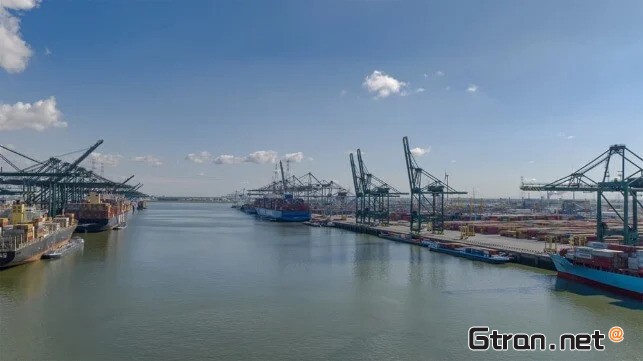In a surprising turn of events, the Port of Antwerp-Bruges has overtaken the Port of Rotterdam in terms of container volume during the first quarter of 2025. Traditionally Europe's second busiest port, Antwerp-Bruges reported a significant increase in its market share within the Hamburg-Le Havre Range, reaching 30.5 percent. Globally, the port climbed one position to rank 14th among the world's largest ports. However, like its peers, it anticipates challenging times ahead due to the persistent tariff policies of the United States.

Antwerp-Bruges' first-quarter performance highlighted the resilience of its container business, despite an overall decline in throughput primarily driven by a sharp drop in bulk volumes. Container throughput saw an increase of 4.6 percent in tonnage and 4.5 percent in TEUs, handling a total of 3,436,000 TEUs. In contrast, the Port of Rotterdam, long dominant in Europe, reported a 2.2 percent increase in TEUs to 3,364,000.
The Belgian port attributed its growth to the transition to new alliances among liner companies, industrial actions including a paralyzing port strike, and congestion at other ports, which also contributed to longer container dwell times for Antwerp-Bruges. Rotterdam's tonnage decrease was attributed to an eight percent decline in loaded exports, a reduction in transshipment containers, bad weather in January, and an operational dispute at one of its terminals, resulting in fewer ship visits, delays, and lower productivity.
During the quarter, Antwerp-Bruges handled 67.7 million tonnes of cargo, marking a four percent overall decline. The port cited weak performance in bulk categories as the primary reason. Liquid cargo experienced the sharpest decline, falling by 19.1 percent, influenced by reductions in gasoline, naphtha, and LNG. This segment is not only affected by sanctions against Russia and the struggling European petrochemical sector but also by changing market conditions in Africa. Belgium's ban on high-sulfur and benzene fuel exports to Africa is having a significant negative impact on shipments.
Rotterdam also reported an overall 5.8 percent decline in first-quarter throughput, primarily due to reduced handling of crude oil and oil products, iron ore, and coal.
Jacques Vandermeiren, CEO of the Port of Antwerp-Bruges, stated, “We are in particularly uncertain times, which makes it difficult to predict what 2025 will bring next. However, as in previous crises, our port is demonstrating resilience and operational reliability. At the same time, the protectionist measures taken by the United States highlight the need for Europe to strengthen its economic policies to bolster our industry and secure its strategic position.”
Historically, the United States has been the second-largest global trading partner for the Port of Antwerp-Bruges for over two decades. In 2024, maritime trade volume accounted for approximately 10 percent of the port's overall cargo traffic. Of this, 11 million tonnes were exported to the U.S., with the port handling over 200,000 cars destined for the U.S. as well as auto and machinery parts (mostly from Germany), chemicals, vehicles, food, plastics, and pharmaceuticals.
Executives at the Port of Rotterdam expressed similar concerns, noting that while import duties imposed by the United States on goods exported from Europe had not yet impacted first-quarter throughput, they were creating uncertainty. Boudewijn Siemons, CEO of the Port of Rotterdam Authority, said, “The first three months of this year were marked by significant volatility in world trade due to threatened import duties in the United States and conflicts in Ukraine and the Middle East. This volatility has led to uncertainty among companies regarding trade and investment, which we see reflected in throughput volumes and investment willingness. In these uncertain times, it is crucial that, together with national and European governments, the Port of Rotterdam continues to strive for a competitive European investment climate.”


